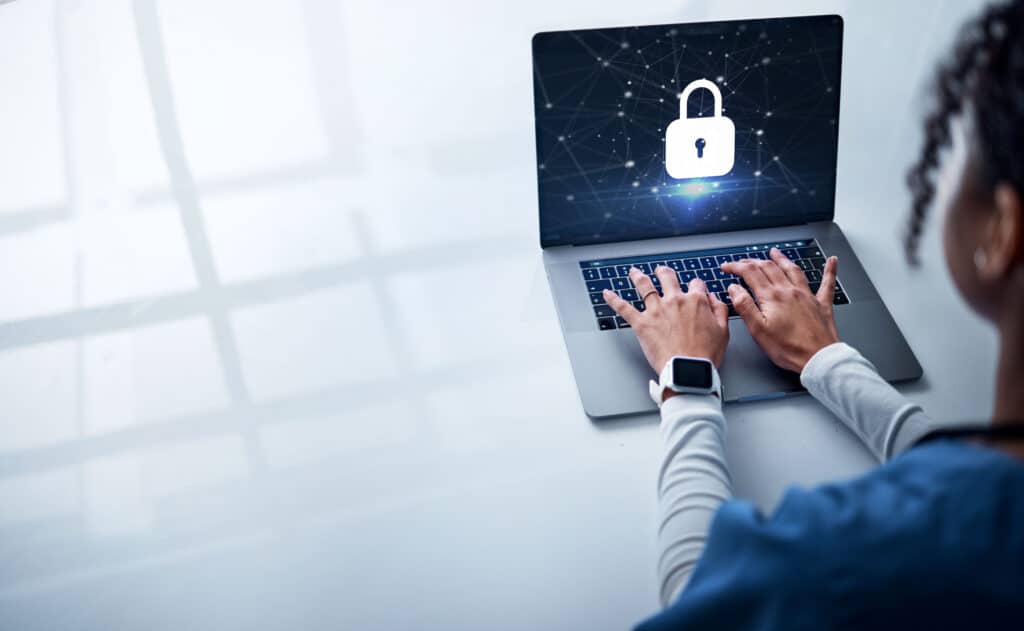The patients under your care may generate referrals, friendships, or fond memories, but one thing they will undoubtedly generate is an impressive amount of electronic information. And while you have assuredly fostered a welcoming and relaxing environment, your medical spa is still subject to the same HIPAA requirements on patient data that larger hospitals are.
This protects your patients, of course, but it also protects your practice from the heavy financial burden of a data breach. From personal to financial data, ensuring that your patient’s electronic medical records (EMR) are secure is of utmost importance in our digital world. This may seem like a daunting task, but fear not, today we will discuss the different ways in which data is collected and a few of the ways you can protect yourself and your patients from the risks of cybercrime.
Where and What is All of this Data?
Depending on the software you’ve chosen to run your medical spa, these systems could be separated into individual software platforms, or they could be housed in a single software suite. There are pros and cons to both options, but let’s explore their function and potential for risk.
- Patient Management – This system is likely the first to come to mind when discussing EMR and patient data. Your patient management system will hold the majority of information, from insurance and preferences to historical and planned procedures. There are several systems available to transition your office from stacks of paperwork to electronically available patient history. HIPAA requires a minimum level of security for this information, however, many companies provide software to not only manage this information but ensure your practice remains in compliance.
- Administrative Software – Given the unique nature of each procedure performed in a medical spa, specialized tooling, medicine, and treatments are quite common. While this process can be automated easily and efficiently via software, all of this data can derail an otherwise smooth practice. Though seemingly less important than a patient’s medical record, it is imperative that this system is just as secure as your patient management software.
- Appointment Booking – While this may seem like a fairly straightforward process, there are several factors to consider when scheduling a service in your medical spa. This includes ensuring that the patient and provider are both available at the selected time, ensuring that supplies are on hand (or will arrive) by the time of appointment, and ensuring no other patient has already selected that time with that provider. Although this information will not include the depth and breadth of data in your patient management system, it still warrants a marked level of security.
Our Office Uses Secure Software, Do We Still Need to Worry?
Using HIPAA-compliant software is only the first step in securing your practice and your patient data. This software, whether you use a single platform or several, only helps to keep your information safe from a cyber-attack. According to the 2023 Verizon Data Breach Investigations Report, 74% of cybersecurity data breaches involved a human point of failure.
- Phishing Attacks – Deceptive e-mails, instant messages, and even unexpected links can lead to a breach of data in your practice. A majority of EMR data breaches occur due to untrained, or unaware employees. As a healthcare provider, ensuring employees are trained in the recognition and reporting of suspicious electronic communications can be the difference between a successful practice, and a closed one.
- Physical Security – This doesn’t mean that your medical spa needs to have armed guards and a vault door, what it does mean, is that all electronic devices housing EMR need to be protected. Leaving these computers or tablets unlocked and accessible can quickly lead to a data breach. Another risk factor that has become more prevalent in our hybrid/remote workforce, is the use of personal devices to access patient data. Ensuring not only the device but also the network an employee uses to connect to the patient portal is secure is important.
Final Thoughts
Patients are the cornerstone of any medical spa, and their quality of treatment goes beyond just the procedure. Ensuring that their information is secure protects everyone involved, while also providing a more seamless and successful treatment. Maintaining HIPAA compliance, as well as continued education of all employees on cyber hygiene, should be second only to your patient care.

